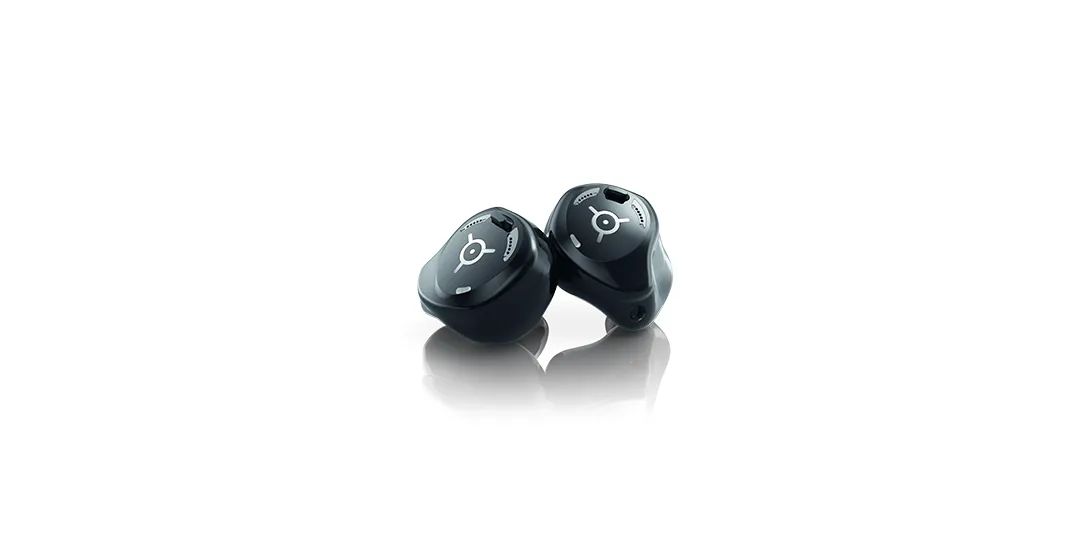5 things you should know about hyperacusis | Connect Hearing

5 things you should know about hyperacusis | Connect Hearing
10 Min.
Publication Date: July 18, 2019
Experiencing discomfort when being exposed to excessively loud sounds is normal. Being hypersensitive to everyday sounds, however, is not. This hypersensitivity to sound is known as hyperacusis. This condition makes life more difficult for its sufferers. Hyperacusis is more than our regular hypersensitivity to sounds of low to medium intensity. Affected people show impaired tolerance towards everyday sounds and usually avoids situations that can cause irritability or uneasiness. Do you want to learn more about this topic? Here are 5 things you should know about hyperacusis.
Common sounds cause uneasiness.
It doesn't need to be an extraordinary sound for patients to feel uneasy: Barking dogs, vacuum cleaners, crying children, ringing telephones and even laughter can trigger a painful response.
Don’t confuse this condition with misophonia. While hyperacusis patients suffer from a hypersensitivity to everyday sounds, misophia is a disorder in which certain sounds trigger "over-the-top" emotional or physiological responses that some might perceive as unreasonable given the circumstance, usually to very specific and repeated sounds such as the ticking of a clock, tipping sounds, dripping taps and even chewing.
Earplugs exacerbate the problem.
As a reaction to the silence the hearing aid further amplifies the sounds. Thus, instead of alleviating the patient’s sensitivity, the use of hearing protection can actually increase the sounds’ intensity and cause even greater discomfort.
Furthermore, it is very common for people suffering from hyperacusis to isolate themselves to avoid unpleasant sounds. Unfortunately, the more they avoid these sounds the stronger their hypersensitivity gets.
Suffering from a hypersensitivity to sound does not mean that one’s hearing is better.
Those suffering from hyperacusis don't have “super-human hearing” compared to people whose hearing is unimpaired. While their sense of hearing can be completely normal, what differs from the norm is their reduced tolerance to common everyday sounds.
Usually humans can tolerate up to 90 decibels without feeling uncomfortable – hairdryers and mixers, for instance. However, people with a hypersensitivity to sound experience discomfort when hearing sounds at lower decibels as well. For instance, talking at a normal volume, which registers at 60 decibels, can make hypersensitive people feel uneasy.
This can be accompanied by tinnitus.
Tinnitus is a kind of sound illusion that makes the affected person feel like they constantly hear a ringing in their ears. Various factors can cause this internal sound – among others loud noises, aging, diabetes, ear infections and ear trauma.
Hyperacusis is one of the complications of tinnitus. This is due to the fact that continuous sounds cause excessive intolerance and result in even more sensitive hearing.
One type of treatment is sound therapy during sleep.
There are no drugs or surgeries to cure hyperacusis. There are, however, therapies aimed at alleviating the patient’s discomfort and increasing their quality of life. One of these treatments is sound therapy during sleep.
Our brain never shuts down. Therapists can therefore use sleep to implement de-sensitizing therapy using white noise. This is done without headphones as the approach aims to mix it with ambient noises. To do so, the patient is subjected to a quiet, pleasant noise during sleep. This is often done without headphones as the approach aims to mix it with ambient noises.
During sleep our brain learns that sounds of this intensity are not threatening. The volume is slowly increased until it isn’t perceived as unpleasant any more.
In summary, hyperacusis is a hypersensitivity to sound which can in turn have a large impact on the lives of those who suffer from it. If the situations illustrated above sound like something you’ve experienced before, consult a specialist for a diagnosis and treatment options. This will allow you to get this condition under control and live a normal life.



